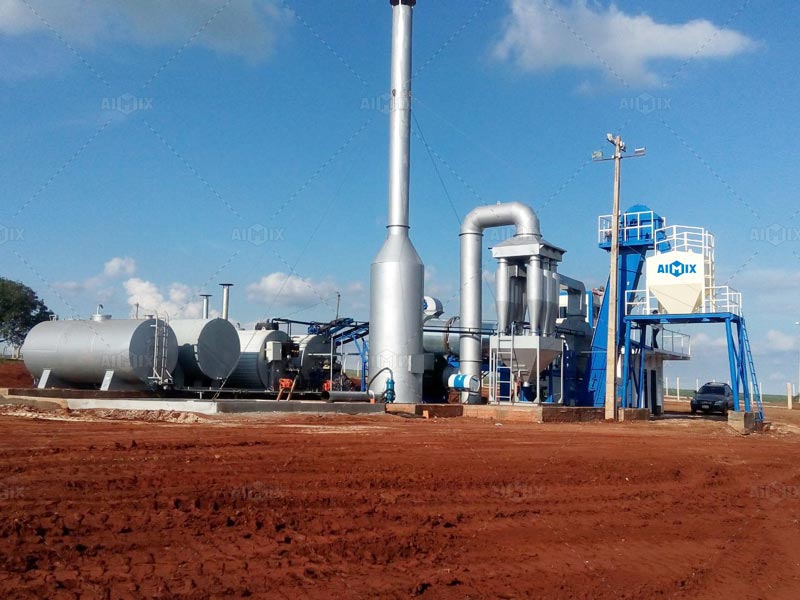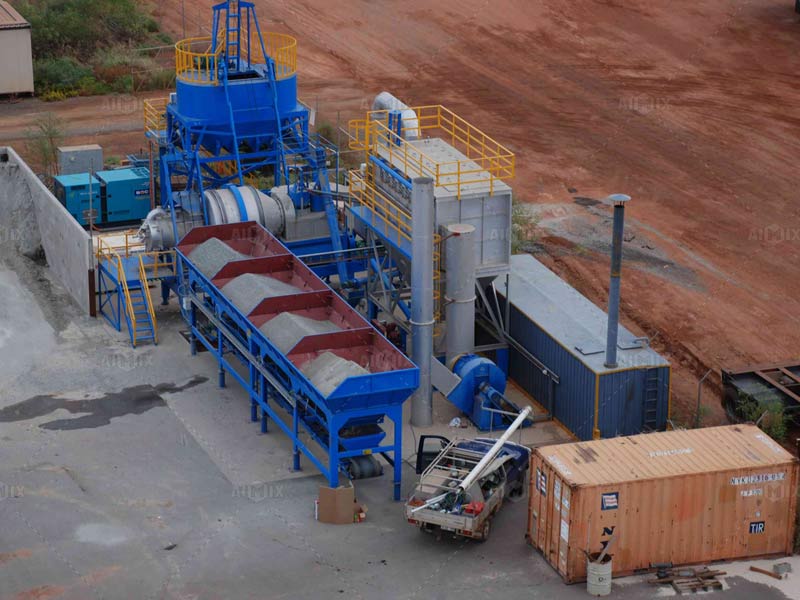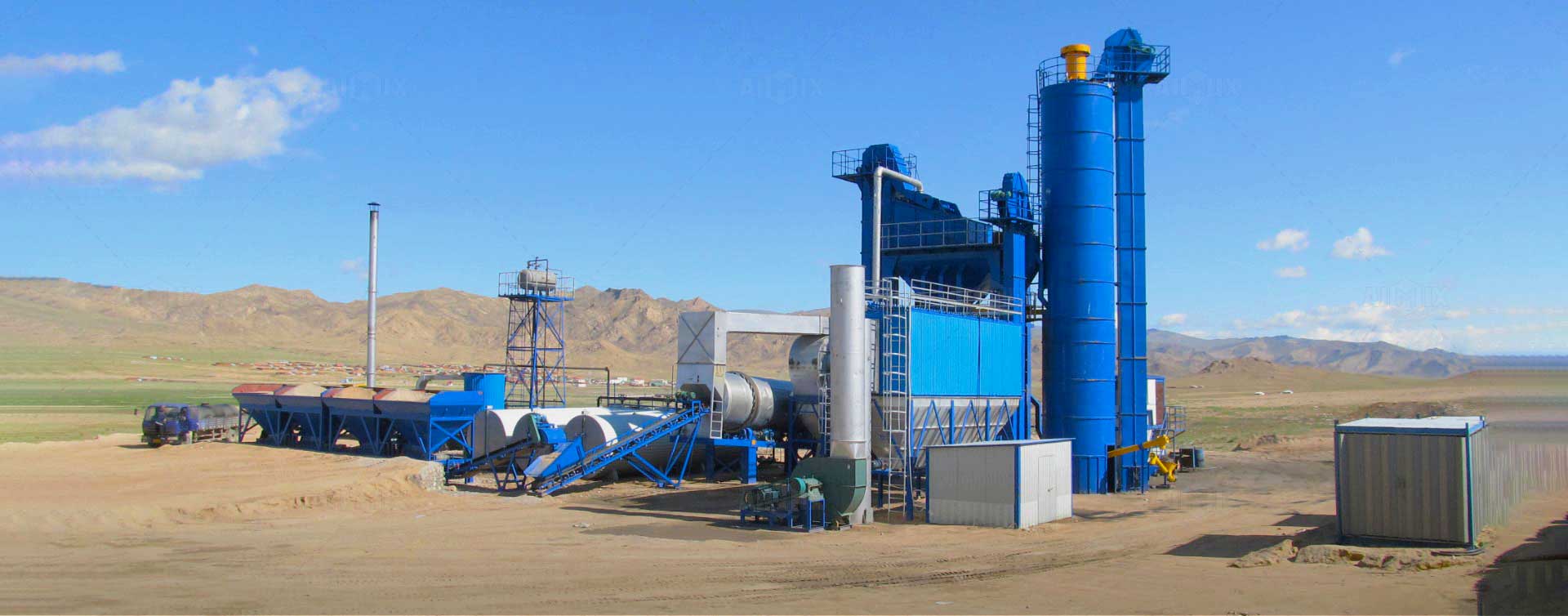The construction industry is constantly evolving, and with the increasing demand for fast, efficient, and cost-effective solutions, innovation is key. One such innovation that has gained immense popularity is the mobile asphalt mixing plant. This equipment offers unparalleled flexibility and efficiency in road construction and maintenance projects. In this article, we will explore how a mobile asphalt plant(planta de asfalto móvil) revolutionizes construction and why it’s becoming a game-changer for contractors and project managers.

What is a Mobile Asphalt Mixing Plant?
A mobile asphalt mixing plant is a portable facility that produces hot asphalt mix, essential for building roads, driveways, parking lots, and other infrastructure projects. Unlike traditional stationary asphalt plants, mobile plants can be transported to different job sites, eliminating the need to haul the mixed asphalt long distances. This convenience leads to faster project completion and more efficient use of resources.
The Flexibility of Mobile Asphalt Plants
On-Site Production
One of the most significant advantages of a mobile asphalt plant is the ability to produce asphalt on-site. For construction companies working in remote areas or handling multiple smaller projects, this flexibility is invaluable. It allows contractors to avoid the hassle of coordinating asphalt deliveries from distant locations. As a result, there’s less downtime, and the risk of asphalt mix cooling before it reaches the site is minimized.
Easy Relocation
Mobile asphalt plants are designed for quick setup and relocation. When a project is finished, the asphalt plant can be disassembled, loaded onto trucks, and moved to the next job site with minimal effort. This feature is particularly beneficial for contractors who manage various road projects over wide geographic areas. Being able to relocate the plant without significant costs or delays makes mobile units ideal for time-sensitive work.
Adaptable for Various Projects
Whether you’re working on a large highway or a smaller project like a residential driveway, a mini asphalt plant(una mini planta de asfalto) can adapt to different scales of construction. These smaller mobile units are particularly useful for jobs with lower output requirements, providing all the benefits of mobile production without the need for large-scale machinery. This versatility means contractors can take on a wider range of projects, from local roads to major infrastructure developments.

Cost Savings and Efficiency
Reduced Transportation Costs
With a mobile asphalt mixing plant, there’s no need to transport asphalt from a stationary facility to the job site, which can result in significant cost savings. Transporting hot asphalt mix over long distances can also affect the quality of the material, leading to potential waste or reduced pavement durability. By producing asphalt directly on-site, contractors reduce fuel costs, minimize material waste, and ensure that the asphalt remains at optimal temperature for paving.
Faster Project Completion
The convenience of having an asphalt plant(planta de asfalto) on-site dramatically reduces the time required to complete projects. With asphalt readily available as needed, workers can focus on continuous paving, avoiding delays due to waiting for deliveries. This efficiency is crucial for time-sensitive projects, such as road repairs, where minimizing disruptions to traffic flow is a top priority.
Labor Savings
Since mobile asphalt plants are designed for ease of operation, they typically require fewer workers to run compared to stationary plants. The automated systems built into modern units allow for streamlined production, meaning contractors can get more done with fewer personnel. This reduction in labor costs adds to the overall efficiency of using a mobile asphalt plant.
Environmental Benefits of Mobile Asphalt Plants
Lower Carbon Footprint
Transporting asphalt from a central plant to a job site involves significant emissions from trucks, especially over long distances. By eliminating the need for such transportation, mobile asphalt plants help reduce the overall carbon footprint of construction projects. Additionally, the ability to produce the exact amount of asphalt needed on-site minimizes waste, further reducing environmental impact.
Recycled Asphalt Use
Many modern mobile asphalt plants come equipped with recycling capabilities. This allows contractors to incorporate recycled asphalt into the mix, further reducing the need for new raw materials and decreasing the environmental burden of road construction. Using recycled asphalt also contributes to lower material costs, making these plants both eco-friendly and economically advantageous.
The Market for Mobile Asphalt Plants
Asphalt Plant for Sale: What to Consider
With the growing demand for mobile asphalt plants, the market offers a wide range of options to choose from. When looking for an asphalt plant for sale(planta de asfalto venta de AIMIX), it’s essential to consider factors such as production capacity, mobility, fuel efficiency, and ease of use. Many contractors opt for mini asphalt plants for smaller jobs, as these units offer the perfect balance of portability and productivity.
Another consideration is the level of automation. Advanced mobile asphalt plants come with digital controls that simplify the production process, allowing operators to make precise adjustments to temperature, mix ratios, and other critical factors. For companies looking to stay competitive in today’s fast-paced construction environment, investing in a high-quality mobile asphalt plant is a smart decision.
Challenges and Solutions
Weather and Site Conditions
While mobile asphalt plants offer numerous benefits, they are not without challenges. For instance, extreme weather conditions can affect asphalt production, particularly when working in colder climates. However, many mobile plants come equipped with features like thermal insulation and heating systems to combat these issues, ensuring consistent production regardless of external conditions.
Maintenance
As with any equipment, regular maintenance is necessary to keep a mobile asphalt plant running smoothly. The portable nature of these units means they are subject to more wear and tear than stationary plants. Implementing a routine maintenance schedule, along with timely replacement of parts, will ensure long-term efficiency and reliability.
Conclusion
The mobile asphalt mixing plant is a revolutionary solution that brings flexibility, cost savings, and environmental benefits to construction projects of all sizes. Whether you’re a contractor working on small local roads or managing large-scale infrastructure developments, the ability to produce asphalt on-site transforms the way projects are executed. As demand for efficient, sustainable construction methods grows, mobile asphalt plants will continue to play a critical role in the industry’s future.
